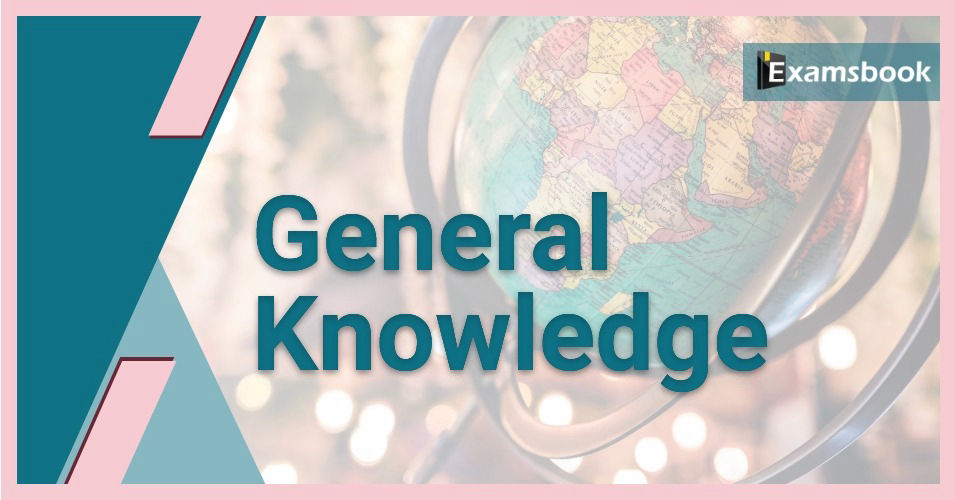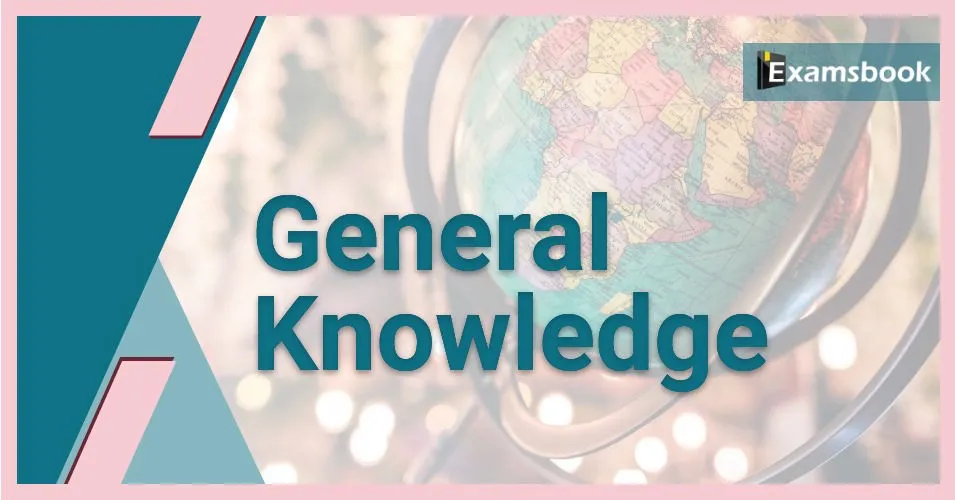


At present, competition in competitive exams is increasing continuously and every candidate wants to crack prestigious exams like SSC, UPSC, RPSC, Banking, Police, and Railway in their first attempt. But, first of all, candidates need to pay special attention to the subject of general knowledge. Because General Knowledge is the only subject that is much more detailed than Reasoning, the Mathematics section in the exam. So, this blog is useful for all candidates preparing for competitive exams. You need to know that General Knowledge (GK) is an important section of all government exams. General Knowledge is an essential subject to succeed in various exams and crack the interviews related to them, current affairs, bank-finance, politics, history, sports, science-Technics for students to score full marks in GK subjects. It is necessary to have special knowledge of the topic related to it.
Here in this article, we are providing you with Important and Latest General Knowledge (GK) 2021: GK Questions, Topics, Mock Tests, and Practice Tests. By solving all these GK question quizzes daily you can increase your speed and accuracy so that you can solve them according to the latest syllabus and pattern of competitive exams. Also, some such GK questions are asked in the exam, which is a bit confusing for the students. So, before attempting the General Knowledge questions, stop and think carefully and choose the correct option in the GK MCQ questions. Let us start solving GK questions -
Also, Read Latest Current Affairs Questions 2023: Current Affairs Today
Test your knowledge and stay ahead with our General Knowledge Mock Test and Current Affairs Mock Test– a perfect way to challenge yourself and stay updated!
Q :
In which of the following is not correctly matched?
(A) Dev Raya II : Sangama
(B) Vira Narasimha : Tuluva
(C) Venkata II : Aravidu
(D) Narsimha : Chalukya
Who was the leader of the non-violent civil disobedience movement against British rule in India?
(A) Dr. B.R. Ambedkar
(B) Mahatma Gandhi
(C) Bhagat Singh
(D) NathuRam Vermaa
In the year 1930, under the leadership of M.K.Gandhi, the Civil Disobedience Movement began. The Civil Disobedience Movement was founded on the principle of defying British regulations. From his ashram in Sabarmati, Gandhiji started his legendary Salt March Dandi March to the Gujarati seaside village of Dandi.
Who was the first Indian woman in space?
(A) Sunita Williams
(B) Rekha Sharmaa
(C) Kalpana Chawla
(D) Manisha Bahal
Kalpana Chawla (March 17, 1962 – February 1, 2003) was born in Karnal, India. She was the first Indian - American astronaut and first Indian woman in space. She first flew on Space Shuttle Columbia in 1997 as a mission specialist and primary robotic arm operator.
Which battle in 1757 marked the beginning of British rule in India?
(A) Battle of Panipat
(B) Battle of Khajuroho
(C) Battle of Haldighati
(D) Battle of Plassey
The famous Battle of Plassey was fought here on 23rd June, 1757 between the last independent ruler of Bengal, NawabSiraj Ud-Daula (1756-1757) and the British forces under the command of Lord Clive. This battle marked the advent of the British rule in the erstwhile Bengal and in India as a whole.
The Indian National Congress was founded in which year?
(A) 1885
(B) 1886
(C) 1888
(D) 1944
On 28 December 1885, the Indian National Congress was founded at Gokuldas Tejpal Sanskrit College in Bombay, with 72 delegates in attendance. Hume assumed office as the General Secretary, and Womesh Chunder Bonnerjee of Calcutta was elected president.
Four Ashrams are related to which of the following?
(A) From the stages of life
(B) From the religious and worshipable place of Arya Samaj.
(C) From the residence of kings and saints
(D) By caste
There are following four ashrams:
• Brahmacharya – student
• Grihastha – household household
• Vanaprastha – Forest traveler/forest dweller
• Sanyas – renunciation
Which ancient Indian text is considered the oldest surviving scripture in the world?
(A) Atharved
(B) Rigveda
(C) Yjurved
(D) Saamved
The Rigveda Samhita is the oldest extant Indic text. It is a collection of 1,028 Vedic Sanskrit hymns and 10,600 verses in all, organized into ten books (Sanskrit: mandalas). The hymns are dedicated to Rigvedic deities.
Who is known as the Father of the Indian Constitution?
(A) Bhagat Singh
(B) NathuRam Vermaa
(C) Chandra Shekhar
(D) Dr. B.R. Ambedkar
Dr Bhimrao Ambedkar is known as the father of Indian constitution. On 29 August 1947, the Constituent Assembly set up a Drafting Committee. This Drafting Committee was headed by Ambedkar.
The Indus Valley Civilization was primarily located in which modern-day country?
(A) Afgaanistaan
(B) Pakistan
(C) India
(D) China
The Indus River Valley Civilization, 3300-1300 BCE, also known as the Harappan Civilization, extended from modern-day northeast Afghanistan to Pakistan and northwest India.
What famous ancient university was located in the city of Nalanda?
(A) Varanasi University
(B) Takashshila University
(C) Vrindavan University
(D) Nalanda University
Ancient alanda UniversityNalanda was established in the 5th century AD in Bihar, India. Founded in 427 in northeastern India, not far from what is today the southern border of Nepal, it survived until 1197.
Get the Examsbook Prep App Today